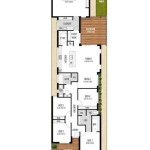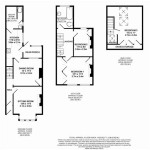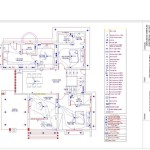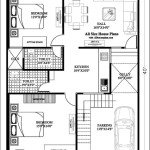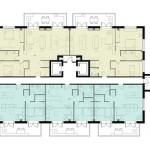Getting House Plans Drawn Up: A Comprehensive Guide
Building your dream home is an exciting journey, but it requires meticulous planning and preparation. One of the most crucial steps is getting house plans drawn up. These plans serve as the blueprint for your home, guiding every aspect of its construction. Here's a detailed guide to help you navigate the process of getting house plans drawn up:
1. Define Your Vision
Before engaging an architect, clearly define your vision for your home. Consider your lifestyle, needs, and preferences. Do you desire a spacious kitchen for entertaining? A home office? A secluded outdoor space? Jot down your ideas and gather inspiration from magazines, websites, or existing homes.
2. Hiring an Architect
Choosing the right architect is paramount. Look for licensed professionals with experience in designing homes that align with your aesthetic and functional requirements. Consider their portfolio, references, and fees. Interview potential architects to gauge their understanding of your vision and their ability to translate it into a cohesive plan.
3. Establishing a Budget
Determine your construction budget upfront to ensure financial feasibility. Discuss fees with the architect, including initial design, revisions, and construction administration. Consider additional costs such as permits, engineering, and landscaping. A well-defined budget will prevent unexpected expenses and keep your project on track.
4. Working with the Architect
Once you hire an architect, work closely with them throughout the design process. Provide detailed information about your needs, desired style, and any specific requirements. The architect will conduct a site analysis, draw up preliminary plans, and present them for your review. Be prepared to provide feedback and make revisions until you achieve your desired design.
5. Finalizing the Plans
After multiple revisions and iterations, you will finalize the house plans. These plans should include detailed drawings of every aspect of the home, including floor plan, elevations, sections, and structural details. The architect will also provide specifications for materials, finishes, and systems.
6. Obtaining Permits and Approvals
Once the plans are finalized, you may need to obtain building permits from local authorities. The architect can assist you with this process by ensuring the plans meet building codes and regulations. Other approvals, such as those from a homeowners' association or historical preservation commission, may also be necessary.
7. Construction Administration
During construction, the architect may provide construction administration services. This involves visiting the site regularly to ensure the home is being built according to the plans. The architect can answer questions, resolve issues, and help you track progress.
Tips for Getting the Most from Your House Plans
* Communicate your vision clearly and provide detailed feedback. * Be open to suggestions and alternative design solutions. * Consider energy efficiency and sustainability in your plans. * Allow ample time for planning and revisions. * Involve all stakeholders, including family members or contractors, in the design process. * Don't hesitate to ask questions and seek clarification from the architect. * Keep a record of all decisions and changes made to the plans.
How Long Does It Take To Draw Up House Plans

Drawing Up Floor Plans Dreaming About Changes Young House Love

Floor Plan Creator And Designer Free Easy App

Make Your Own Blueprint How To Draw Floor Plans

Make Your Own Blueprint How To Draw Floor Plans

Draw Floor Plans In Half The Time Cedreo

Plan Of The Month July

How To Turn Your Home Design Concept Into A Reality Great House

Make Your Own Blueprint How To Draw Floor Plans Drawing House Sketch Plan Blueprints

Get Our House Plans Tiny Big Design

